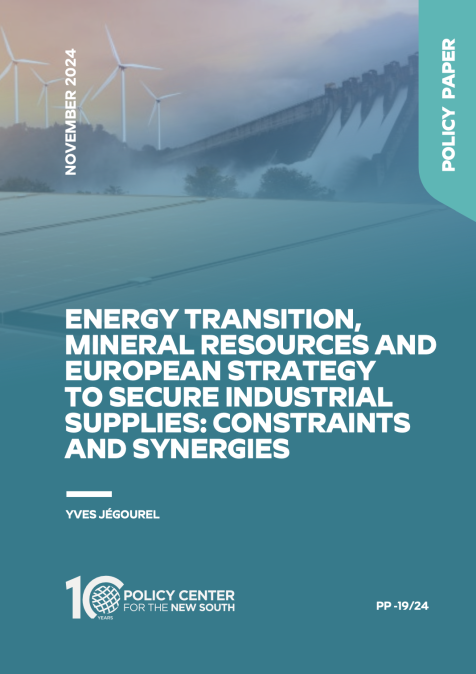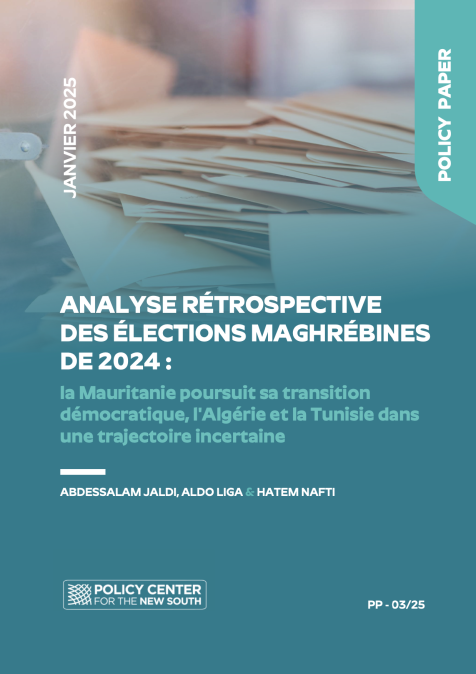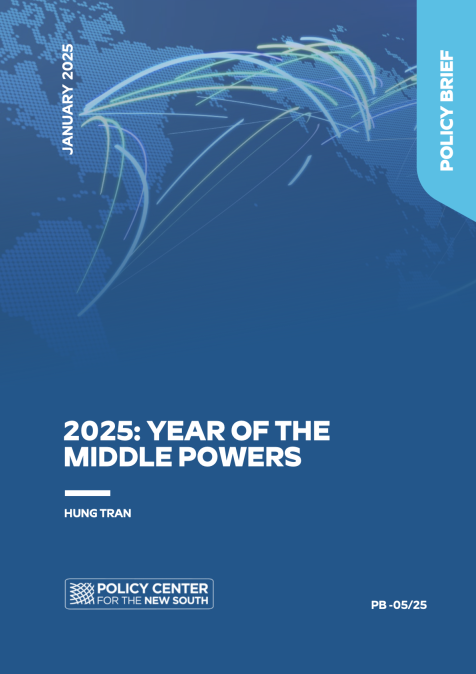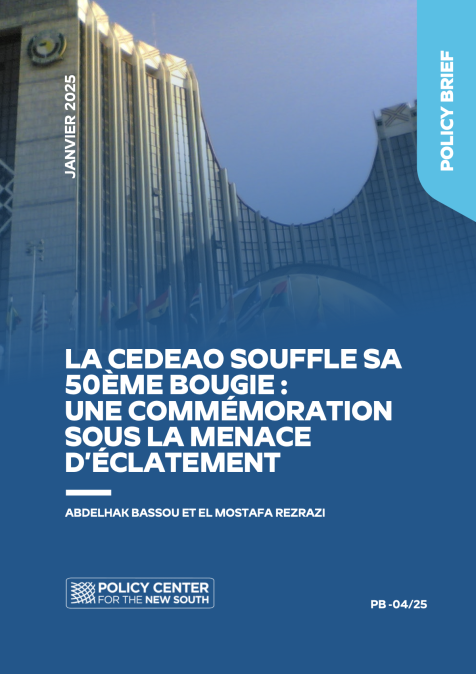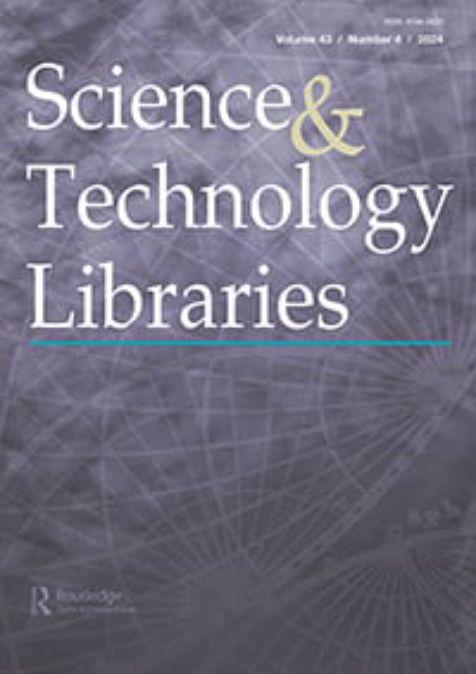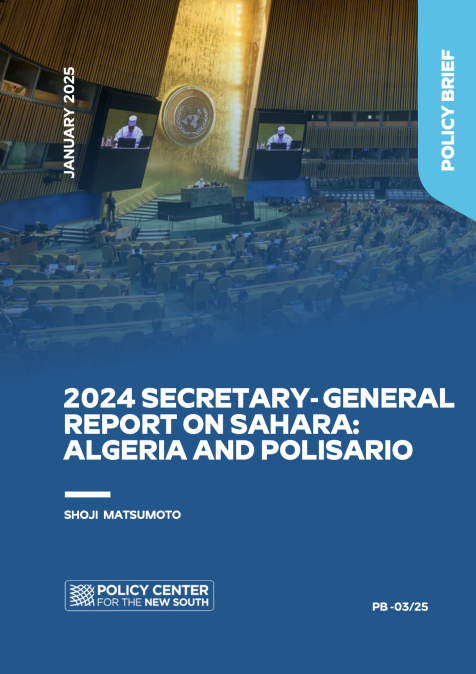Publications /
Opinion
It must have flattered Donald Trump to be honored by a dictator, whom he publicly confessed to love and hold in high esteem. North Koreas Kim Yong-un had ordered that a stamp would be issued commemorating the meeting of the two leaders at Panmunjon, at the demilitarized zone between the north and south. The US President made history when he walked in June of this year a few steps onto North Korean territory, the first American President ever to enter the communist state, ready to make a deal-the total and verifiable denuclearization of the Peninsula.
Another great photo opportunity-the American leader at the front line. The stamp as a document of history. But also of failure. No peace in sight. Not now. Not then, or in Singapore in 2018. Eighteen months and a few short range missile tests ago. Donald Trump, who characterized himself as “very stable genius”, with “great” negotiation skills, has yet to convince the North Korean leader to return to the negotiation table—for a fourth time. Of all people, Joe Biden, the former US Vice President and for now Trump’s most serious rival of the Democratic Party for the Presidency, offered Trump the opportunity to relaunch their privileged communication: The North apparently felt aggrieved over a campaign ad by Biden’s campaign condemning Trump’s foreign policy. The ad said that “dictators and tyrants are praised, our allies pushed aside”, and featured an image of Trump meeting Kim for a first time in Singapore.
“YOU SHOULD ACT QUICKLY”
Pyongyang fumed that Biden had the “temerity to dare slander the dignity of the supreme leadership---Rabid doges like Biden can hurt lots of people if they are allowed to run around”, the official news agency KCNA complained, “they must be beaten to death with a stick.” The American President, officially beyond 11000 tweets, reacted with a timid tweet defence of his rival and reminded the communist leader:” Mr. Chairman, Joe Biden may be Sleepy and Very Slow, but he is not a “rabid dog”. He is actually somewhat better than that, but I am the only one who can get you where you have to be. You should act quickly, get the deal done. See you soon.”
Wishful thinking, perhaps, this idea of another rendezvous, possibly another theatrical photo op close to election time. Kim Yong-un has notified Washington months ago that for him this year’s end is deadline, the end of self-constrained. Since 2017 Pyongyang has not test fired any Intercontinental, nuclear capable, ballistic missiles or conducted nuclear tests. Without doubt the regime used the time to extend its arsenal. More bombs, more missiles, more arguments for the dictator. He did not react personally to Trump, a former North Korean vice foreign minister did:” We will not give anything for the US president to brag about as we have received nothing in return, and we want to receive the benefits of the accomplishments that President Trump is crediting himself for. «Washington seems without strategy except insisting on total nuclear disarmament. This fall working level talks between the two sides in Sweden ended with the North Korean envoy accusing the Americans of coming to the table without any new offers; possibly to appease Pyongyang Washington recently postponed US- South Korean air force drills, which would have involved an undisclosed number of US and South Korean aircraft.
It is only logic and understandable that Donald Trump is not focusing on North Korea since at home he is threatened by impeachment procedures initiated by “one of the United States biggest foreign policy controversies in nearly two decades (“New York Times”, 22.11), since the debate over the intelligence that led to the war in Iraq. Did the President organize a shadow group, including his personal lawyer Rudolph Giuliani, to search in Ukraine for traces of corruption involving his rival Joe Biden and son? Was his later leaked phone call with the newly elected President Volodymyr Zelensky as innocent as the President claims, or did he pressure his colleague in Kiev to declare publicly that the authorities of the country were investigating possible corruption deals of his leading rival for the US Presidency? The price-- an invitation to the White House and the resumption of the delivery of military aid, worth 391 million US dollars, linked to this “small favor”, helping Trump in a smear campaign? For the US President the accusations are either a “witch hunt” or “a hoax”, or is his method possibly just how the former real estate tycoon understands foreign policy?
NO PREDICTABILITY OR LOGIC
Tough economic measures against Beijing, sanctions on Iran, Cuba, Venezuela, North Korea, exemptions for Turkey or Saudi Arabia, tolerance towards Russia, irritations about the Taliban, invited to Washington and then ordered to stay home, the destructions of treaties, as the Iran anti-nuclear deal, ignorance of and disinterest in global danger of climate change, a strategy, if it can be understood like this, with no predictability or logic. After oil installations were blown up in Saudi Arabia Trump declared that the United States was “locked and loaded”, a phrase that seemed to suggest Washington was ready to strike back, presumably against the accused aggressor, Iran. But then Donald Trump promised to wait for Saudi Arabia to tell him “under what terms we would proceed.” The message of the Commander in Chief on Twitter “offered a remarkable insight into the deference Mr Trump gives to the Saudi royal family” stated the” New York Times”, and “touched off a torrent of criticism from those who have long accused him of doing Ryadh’s bidding while sweeping Saudi violations of human rights and international norms under the rug. If the President wants to use military force,” he needs congress, not the Saudi royal family to authorize it”, Representative David Cicilline, the Chairman of the Democratic Policy and Communications Committee wrote on Twitter.
With one phone call Donald Trump opened the gate for brutal forces of Turkey to invade Syria, hunting for Kurds, their enemies, who were allies of the USA until Donald Trump decided otherwise—11000 kurds who trusted Washington died in the battles against ISIS. The retreat of a thousand US Special Forces soldiers was so abrupt that the US had to bomb a depot full of arms that it did not have time to remove. Trump’s ignorance of the world “has never been so blatant”, observed Robin Wright in the “New Yorker”, and “produced such bipartisan opposition”. The House of Representatives voted 354-60 to condemn the Trump ordered pullout. On the Senate floor, Mitt Romney, Republican of Utah, rebuked the President for leaving a “bloodstain on the annals of American history.” As a candidate Trump gloried in beating up on foreign policy experts, wrote Daniel Drezner, professor of International Politics at the Fletcher School of Law and Diplomacy, asserting that he “could get better results relying on his gut.” In facilitating the Turkish invasion the US President did follow his gut—and “rarely has a presidential decision resulted so immediately in what his own party leaders have described as disastrous consequences for American allies and interests “.
“LET THEM FIGHT LIKE TWO KIDS”
Yet Trump seemed delighted with his decision, to let the turks and the kurds, both US allies, fight it out, wrote Robin Wright.” It was unconventional, what I did” he told the crowd at a campaign rally in Dallas. «Sometimes you have to let them fight like two kids. Then you pull them apart.” A few weeks after Trump published a letter he had send (on October 9) to Erdogan after the turks had invaded Syria with Trumps blessings:” Don’t be a tough guy. Don’t be a fool. I will call you later”, and after having threatened to” totally destroy and obliterate” Turkey’s economy, Recep Tayyip Erdogan was received in the White House. Donald Trump praised him “as a tough guy, who deserves respect”. The tough words were for public consumption, business as usual continues in private. Trump’s son of law, Jared Kushner, keeps the communication open with the Turks, since he is a friend of Erdogan’s son in law, Berat Albayrak, the finance minister. Both are connected with the son of law of a Turkish tycoon, who is a business partner of the Trump organization and owner of the “Trump Towers” in Istanbul. The trio of son in laws is keeping the communication channels open, regardless of policy problems. Critics say the Trump administration has balked at aggressively punishing a state owned Turkish bank for evading American sanctions against Iran. Mr Trump has also deferred legally mandated sanctions against Turkey, a member of NATO, for installing Russian missile defense systems. No surprise, admitted Trump at the press conference with his guest:” I am great fan of the president. I have to tell you that.”Mr Erdogan , wrote the “New York Times” in a lead article (“Mr Trump courts another tyrant”) was getting away without any quid pro quo, and that is the problem.”A White House meeting with an authoritarian thug like Mr Erdogan should have a clear and tangible foreign policy benefit for the United States and the world. By contrast, a White House invitation to an ally, like Ukraine’s Volodymyr Zelensky should be a demonstration of generous support. The difference seems to escape Mr Trump.”
“IMPOVISATIONAL FLIRTATIONS”
Trump’s disdain for professional diplomacy and its practitioners, stated William Burns, US Deputy Secretary of State ( 2011 to 2014) and presently President of the “Carnegie Endowment for International Peace”, “along with his penchant for improvisational flirtations with authoritarian leaders …has put an unaccustomed spotlight on our profession.”Dozens of US Embassies worldwide are without an ambassador, hundreds, if not thousands, Foreign service professionals of the State Department have resigned because of lack of leadership. Mike Pompeo, the Secretary of State and close ally of Trump, who is rumored to leave his post early next year to prepare a political campaign for a Senate seat in his home state Kansas, has not defended any of his diplomats testifying in the impeachment procedures against the President, who is not really interested in their professional advise because Trump swears on his famous gut feeling. Didn’t the President declare, years ago, the nuclear threat of North Korea had turned into history? He was certain that tough sanctions would force the ruler of Venezuela to capitulate and Tehran would beg Washington for negotiations on the cancelled nuclear deal. Iran suffers, violent demonstrations and deaths are reported, but, so far there is no white flag of capitulation visible. According to a report just released by the Department of Defense Inspector General President Trump’s withdrawal from Syria has allowed ISIS” to reconstitute capabilities and resources within Syria and strengthen its ability to plan attacks abroad.”
As President, judges Daniel Drezner, Trump has governed “mostly by tantrums. He has bullied and insulted allies. He has said that he trusts Russian President Vladimir Putin more than his own intelligence briefers. The repated attacks on EU and Nato”, writes Drezner, “represent a bigger strategic mistake than the invasion of Iraq.” Trump “is a win –lose negotiator, said Wendy R.Sherman, a former undersecretary of state under Mr Obama, who helped broker the 2015 nuclear agreement with Iran that Trump abandoned last year.”That’s what he did as a real estate developer. He does not see the larger landscape, the interconnections, the larger costs, the loss of greater benefits.” Trump has sealed an accord to update the North American Free Trade Agreement with Mexico and Canada, revised a trade agreement with South Korea and reached a limited trade pact with Japan. He made no progress in the long, drawn out Israeli- Palestinian peace initiative, with the exception to declare Jerusalem the capital of Israel, the occupied Syrian Golan Heights as territory of the Jewish nation and its illegal occupation of Palestinian land, legal.
Just when Donald Trump is experiencing the unpleasant part of love, the sobering of his relationship with Kim Yong-un, the President has challenged America’s partners in South Korea with an outlandish demand. The nation, loyal to Trump in its dealings with the enemy in the north, South Korea (paying almost half of the cost for the stationing of 28 000 US troops in the South), has been asked by Trump to pay an outlandish quintuple of the current payments. No surprise-the negotiations broke down and not only the Koreans in the north (for other reasons) but those in the south are up in arms and Mr Trump’s unreasonable compensation demand” undermines yet another alliance” (New York Times”) Worse: “Mr Trumps mercantile approach to stationing American troops abroad is highly detrimental to America’s role in the world, and its own security and prosperity. In effect, he reduces the Americans abroad to a for-profit-mercenary force…”
The opinions expressed in this article belong to the author.

